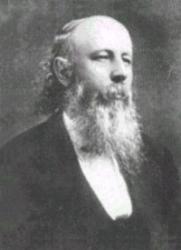8. Induration in general of mamma and uterus (as well after reduction of inflammation as in chronic form), with discharge of mucus. All indurations; not so markedly indicated, however, in indurations resulting from inflammation.
9. For the Carcinomatous diathesis Conium can do nothing, even in the beginning.
10. In Atrophy of mamma and uterus. Conium may be useful; the conditions to which Conium corresponds often coinciding with atrophy; numerous observations show its especial applicability to affections of old women.
11. Results of Contusions; hence, after difficult or instrumental labor.
12. Since the conditions already named are mostly conjoined with discharge, Conium may be considered as anti-leucorrhoeic. Chlorosis, amenorrhoea, and dysmenorrhoea, when they depend on the same cause, indicate Conium; yet these symptoms may be independent, and may still coincide with the symptoms of Conium. To the same category belong also sterility, milk-tumors, and affections caused by the sudden removal of the child from the breast.
13. Affections of the Intestinal canal; seldom when these are primary, chiefly when they are combined with, or rather are consequent upon, a general condition indicating Conium. Vomiting during pregnancy; diseases of the intestinal canal in tuberculous and scrofulous persons, especially scrofulous children.
14. Dry, nightly, tickling cough, especially in scrofulous or aged persons; evening dyspnoea; pertussis, with much vomiting; asthma senile.
15. Feeble condition of old women and men; hysteria; hypochondriasis in chaste wedlock.

